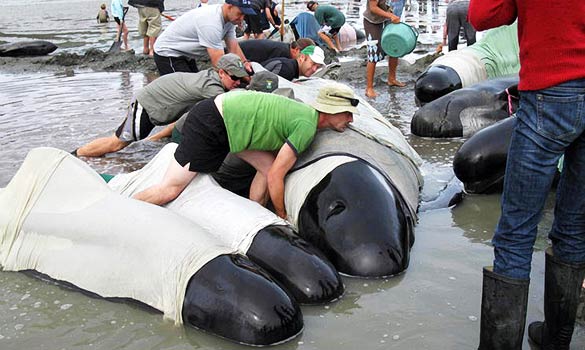
The mother was among 63 whales, mostly cows with calves, that were beached at Colville Bay near Coromandel township early on Sunday. About two thirds of the animals, measuring up to 12ft (3.6m) long, were saved by residents and holidaymakers who kept them wet in the low tide until they could be refloated in the afternoon.
By yesterday a Department of Conservation boat, which had kept close to the pod to ensure that it did not return, reported that the whales were at least 20 miles out to sea, according to Mike Donaghue, a senior adviser at the department.
Ingrid Visser, of the Orca Research Trust charity, watched the calf being born. "It was an amazing sight to see the calf pop like a cork out of the water. We had only just refloated the calf's mother and once the calf was born the cow took it first to the group of whales nearest her, then to the other two. Within 15 minutes she had headed out to sea with the calf and the others had followed her."








